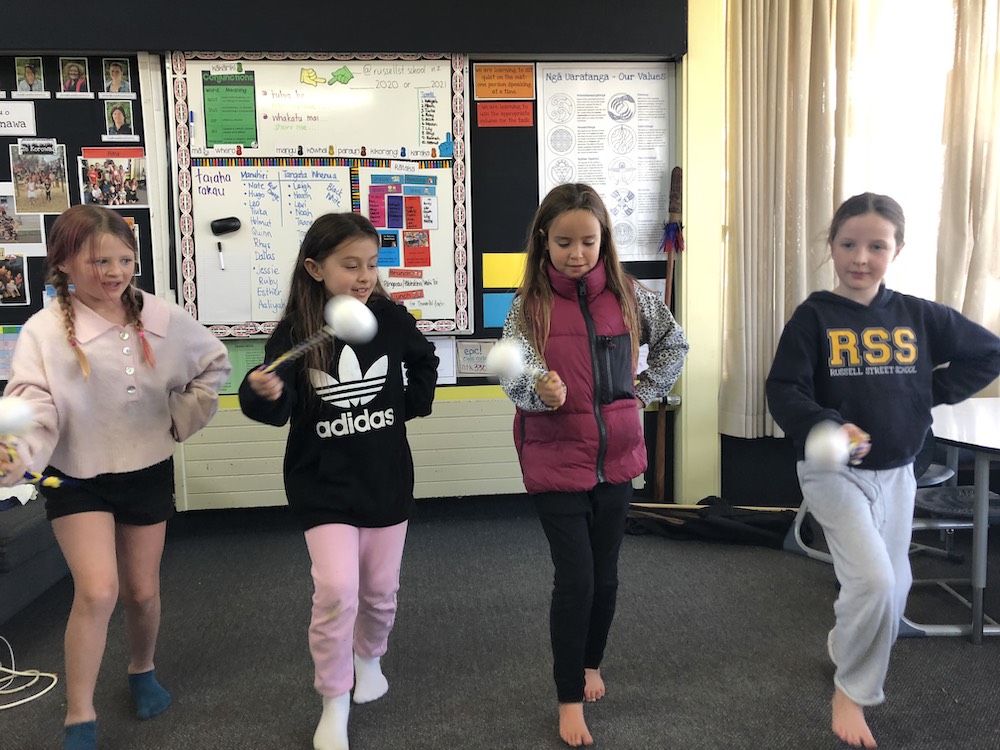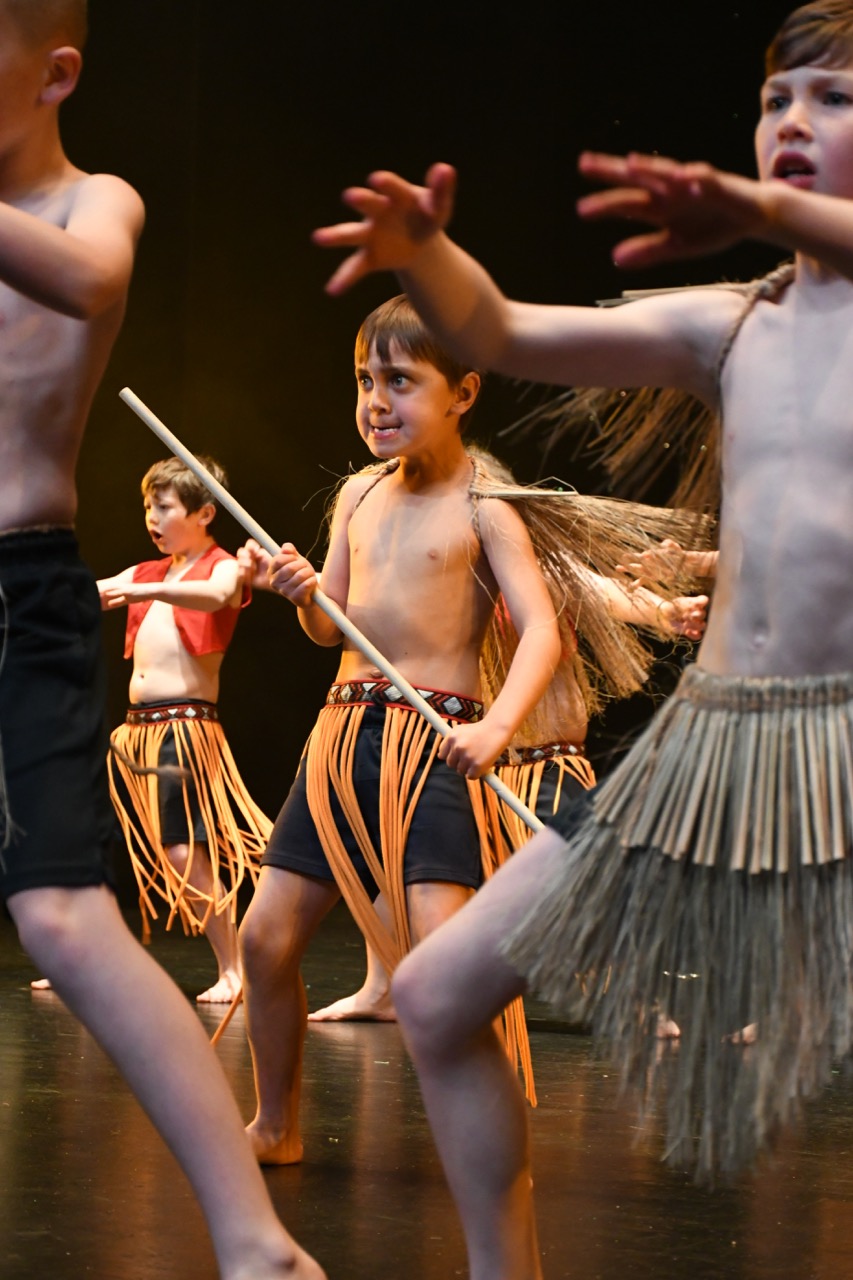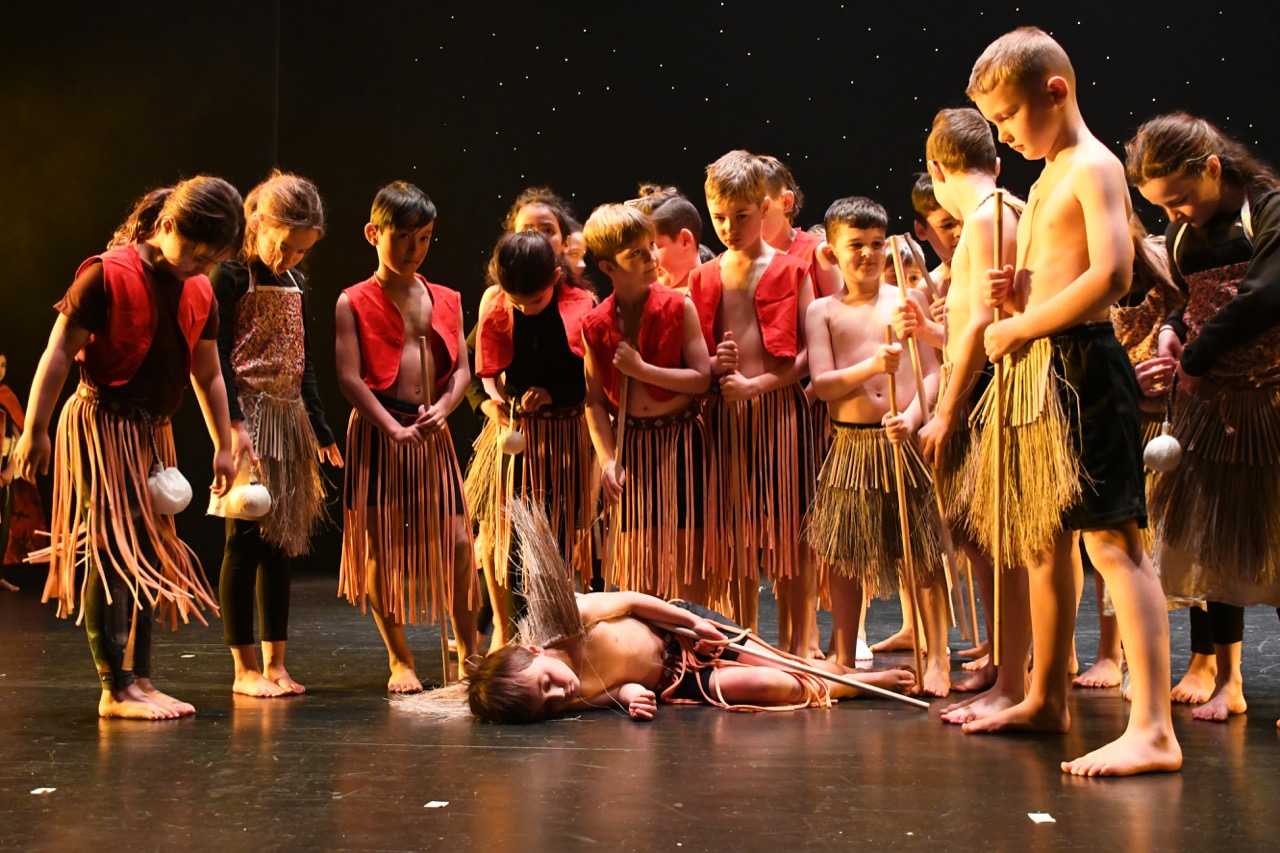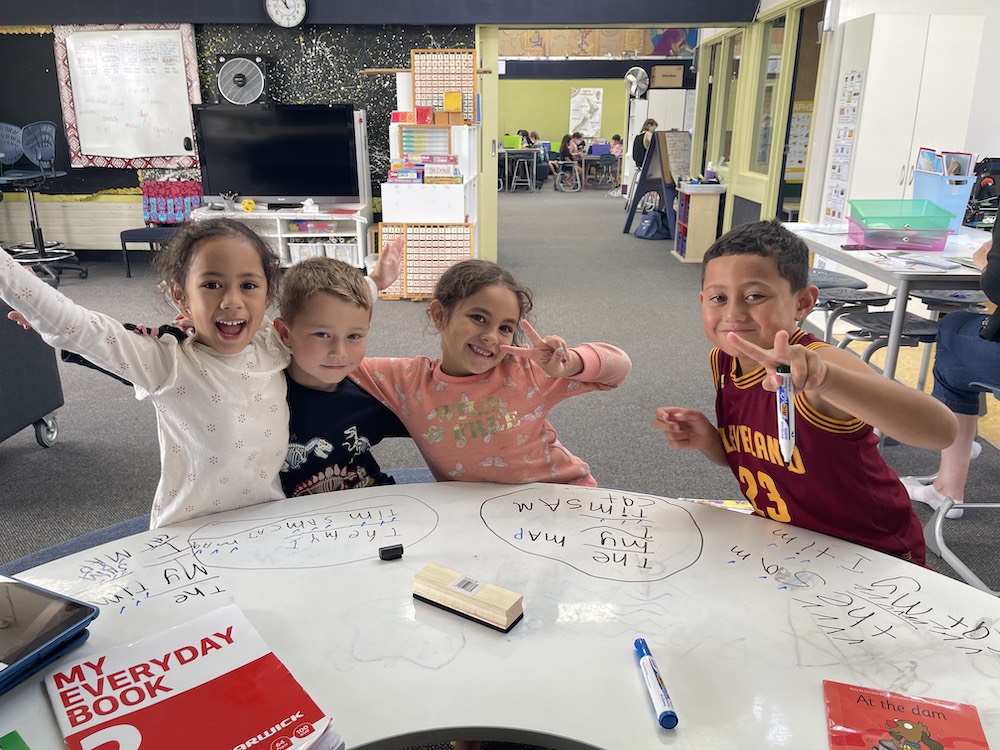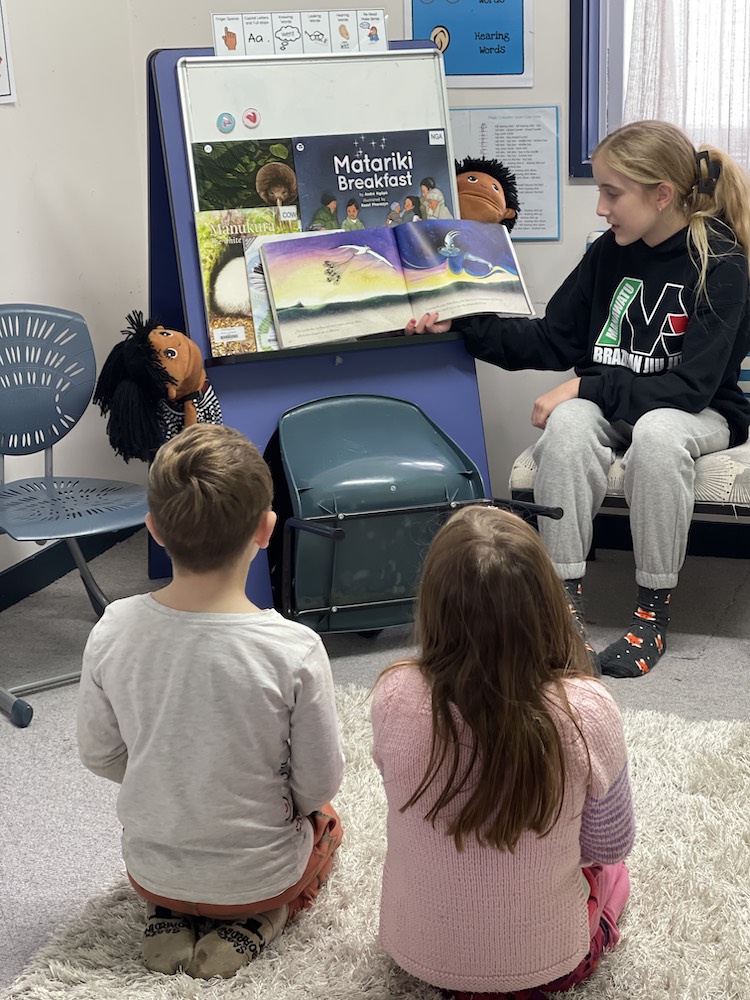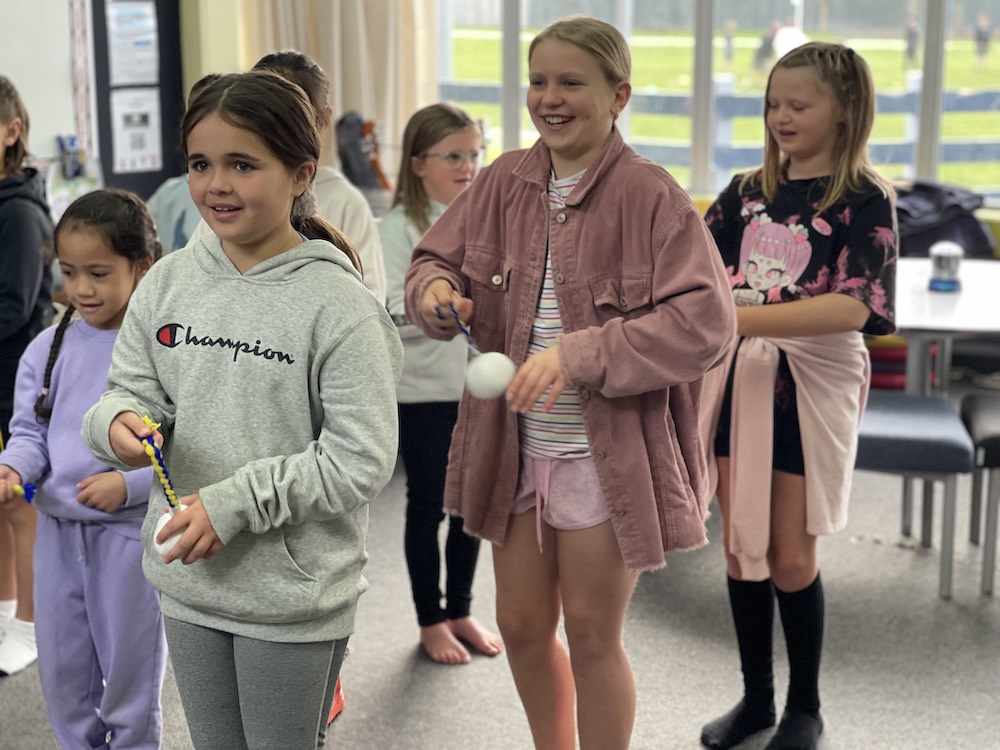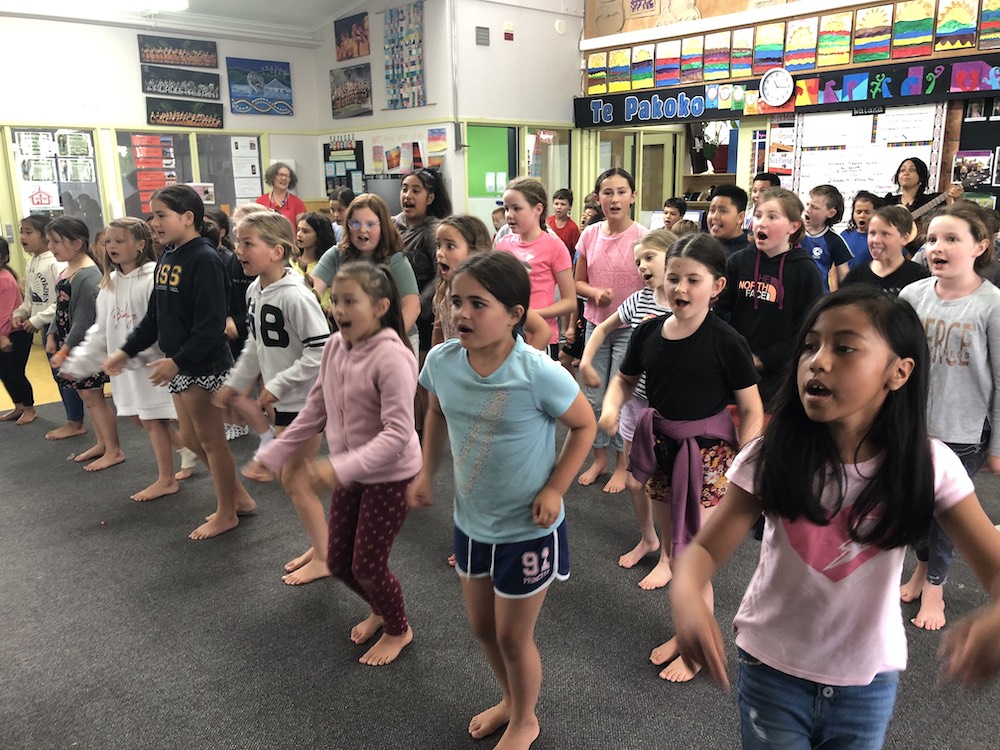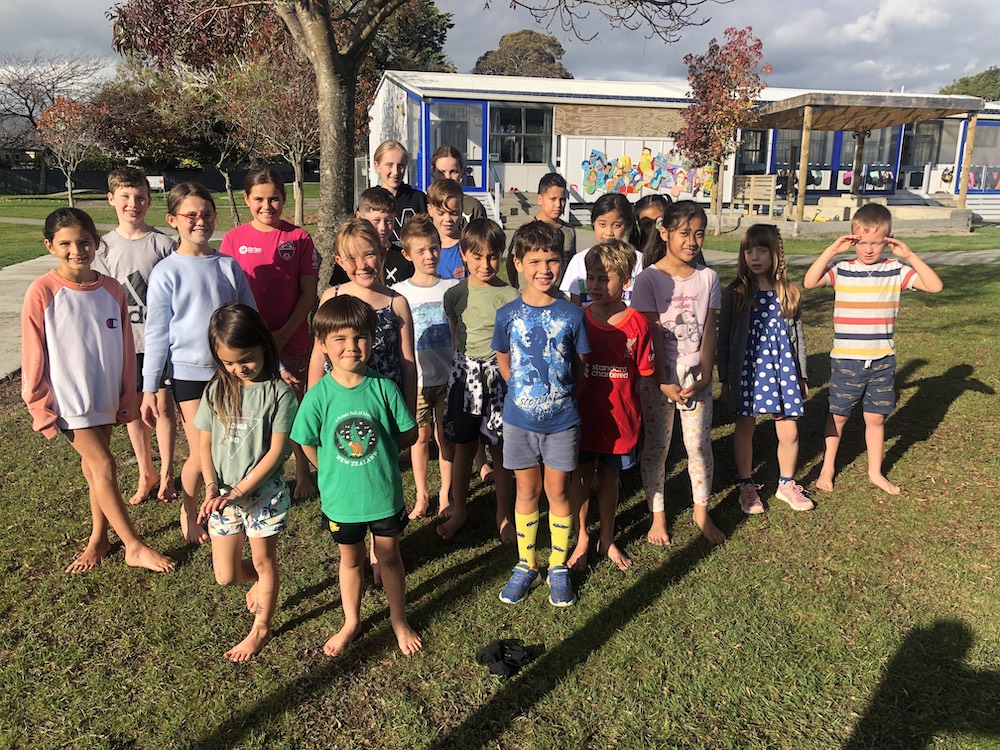Nau mai, haere mai ki Poutokomanawa.
We are a Level 3 Māori Immersion learning space within Russell Street School. This is in recognition of our learning environment that includes Tikanga practices, explicit instruction of Te Reo Māori and an infusion of Te Ao Māori throughout while providing a robust learning programme across all curriculum areas in both English and Māori mediums.
Our whānau consists of up to 75 children ranging from Year 0-6 with four main Kaiako. You can find us in the Poutama building (Rooms 12-14). We draw on the strengths within our teaching team to ensure the best learning experiences for all tamariki, both the individual and the collective. E hara taku toa, i te toa taku tahi, engari, ki te toa taki tini. Success is not the work of one but the work of many.
Ngā Kaiako:
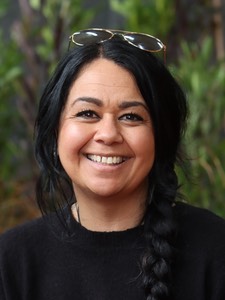 |
Rosie
Ko Hikurangi te Maunga Ko Waiapū te Awa Ko Nukutaimemeha te Waka Ko Te Whānau a Rakairoa te hapū Ko Ngāti Porou te Iwi |
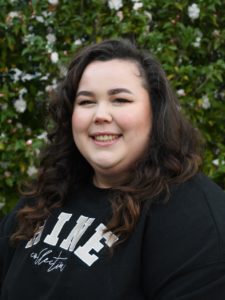 |
Paige
Ko Hikurangi te Maunga Ko Waiapū te Awa Ko Nukutaimemeha te Waka Ko Te Whānau a Rakairoa te hapū Ko Ngāti Porou te Iwi |
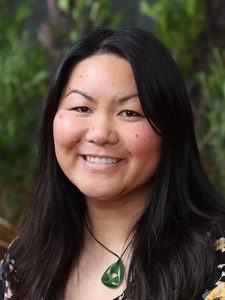 |
Eileen
Ko Māngere te Maunga Ko Manukau te Awa Ko Boeing 747 te Waka Rererangi Ko Ngāti Hainamana te Iwi (Eileen is currently on leave) |
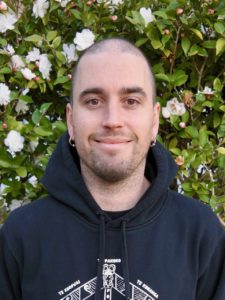 |
Fabian |
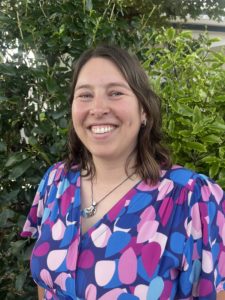 |
Sheina |
We are fortunate to have Whaea Metarina (Kaumātua) who offers support and guidance in all things Māori! We also have a number of Teaching Assistants working alongside and supporting our tamariki with their learning throughout the week.
Our Philosophy…
Our vision for Poutokomanawa is guided by culturally responsive pedagogy where our goal is for all tamariki from all backgrounds to grow up in New Zealand as competent and confident learners, strong in their identity, language and culture. Our pedagogy centres around the encouragement of all tamariki to learn in their own ways, supported by kaiako who know them well and have their best interests at heart. We utilise Ministry of Education documents and resources such as; Tātaiako, Tapasa, Ka Hikitia, Mana Potential and Tau mai te reo as our guiding principles.
From their earliest experience of primary school, tamariki can be immersed in Te Āo Māori, Tikanga, Te Reo and whanaungatanga. A big part of this philosophy is a collaborative, Te Ao Maori teaching approach – “It takes a village to raise a child.” Our curriculum is closely aligned with traditional learning methods that speak to our past, present and future.
Poutokomanawa has always encouraged positive interactions with Te Ao Māori and an appreciation for the Reo and Tikanga that is unique to Aotearoa. Our vision is for all tamariki to have the opportunity to be in our space experiencing Māoritanga and to recognise the importance of identity, who they are, where they come from and to honour all cultures under a Te Ao Māori lens.
While our Literacy and Numeracy curriculum remains mostly English medium we take every opportunity to infuse Te Ao Māori throughout the rest of our day. We do this through sharing pepeha and learning local pūrakau/stories, waiata/songs, Mahi Māori (reo, raranga, poi, tī rakau, tītītorea, rongoa, kai, tukutuku, kowhaiwhai) to name just a few examples.
Poutokomanawa is not just a class but a whānau who work collaboratively across all year levels. Our space uniquely fosters strong tuakana/teina relationships where the tamariki are able to learn from and alongside one another. Mā te tuakana ka tōtika te teina, mā te teina ka tōtika te tuakana. This whakatauki relates to the teina learning from expert peers and tuakana practising all of our school values, especially Hautūtanga (leadership) and Manaakitanga (hospitality) in caring after others.
Whanaungatanga is just as strong within our space. While we have multiple siblings within our learning space, all the tamariki consider each other ‘school siblings’ and take care of each other accordingly. This provides the unique experience of whakawhanaungatanga (another one of our core school values) to build strong relationships across all ages. We also embrace as much whānau involvement as possible through our roopu whānau hui ‘Te Iti Rearea, supporting Kapa Haka and other classroom activities, or just spending time with us throughout the day.
The tamariki are arranged into three main hapori groups and assigned to one of the three kaiako who is a point of contact and overall kaitiaki for their time at school. The hapori are a vertically grouped whānau (Yr 0-6) and come together often for specific activities. For other times of the day it is appropriate for the tamariki to come together in their koeke groups (age groups). For learning more specific to their Literacy and Numeracy goals the tamariki join smaller workshops with like-minded peers. These flexible working groups mean that we can tailor learning to meet the needs of all individuals in an authentic and engaging way.
How can my child be a part of this culturally dynamic learning space?
Dr Timoti Kāretu, Kaumatua (2014), repeats the Māori phrase “hia hia” which means to want or desire. He expands on this explaining that – People have to want to learn Te Reo, they have to desire it without it being forced upon them. We understand that our environment supports Māori learners best as Māori, however, thinking back to Timoti Kāretu, there must be a desire to be immersed in Te Ao Māori. This desire can come from any ethnicity as shown in our history having Indian, Filipino, Asian, American, Australian, NZ European ‘kiwi’ tamariki thriving in our environment.
We accept all ages and any tamariki/whānau who show a desire for Te Ao Māori. Due to popularity, Poutokomanawa do have limited numbers across different age groups. Each year we put out an expression of interest to our RSS whānau or you may indicate your interest on enrolment by ticking the box labelled- ‘Poutokomanawa’. Please come and have a kōrero with any one of the kaiako or Nick (Tumuaki/Principal) for more information about this.
We offer open days/evenings throughout the year but you are welcome to come and visit any time.

